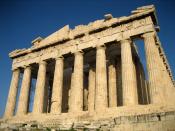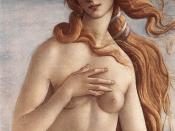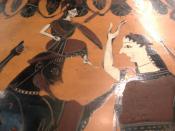The dictionary defines mythology as the myths dealing with the gods, demigods, fictional monsters and legendary heroes - such as the well-known Hercules, Zeus, or Loch Ness Monster. All of these three are mythology because the stories are told about them not as a fact, but mostly for entertainment. No one knows if it's true, if it's false, or if it's a little bit of both - maybe some base story that twisted and grew from various storytellers over time.
The word "myth" is often misunderstood to mean something fictional, like a story that never happened. They're wrong. Myths do not correctly explain what actually happened, but instead make you think that behind the story, it could mean something else - whether it is a moral, some kind of other lesson, or etc.
Most continents and cultures have their own mythology with a set of gods or other well-known characters.
For example, some major African gods are Abora and Mukasa, while in Egyptian mythology a lot of people recognize the names Athena or Zeus.
Myths are often used to tell a lesson, such as the story of Athena and Arachne, where two goddesses have a challenge to see who's the better weaver. Athena was a powerful goddess, and Arachne was a hotheaded woman who thought she was a better weaver than she actually was. Although they both were amazing, Arachne's tapestries insulted the Gods, and Athena got angry - so she transformed Arachne into a spider. To this day, the myth goes, all spiders have been punished for Arachne's boasting, and must live in their own webs that they entwine themselves.
Sources:
http://www.pantheon.org/areas/mythology/
http://www.mythome.org/africang.html
http://www.apple.com/games/articles/2003/09/ageofmythology/index2.html


